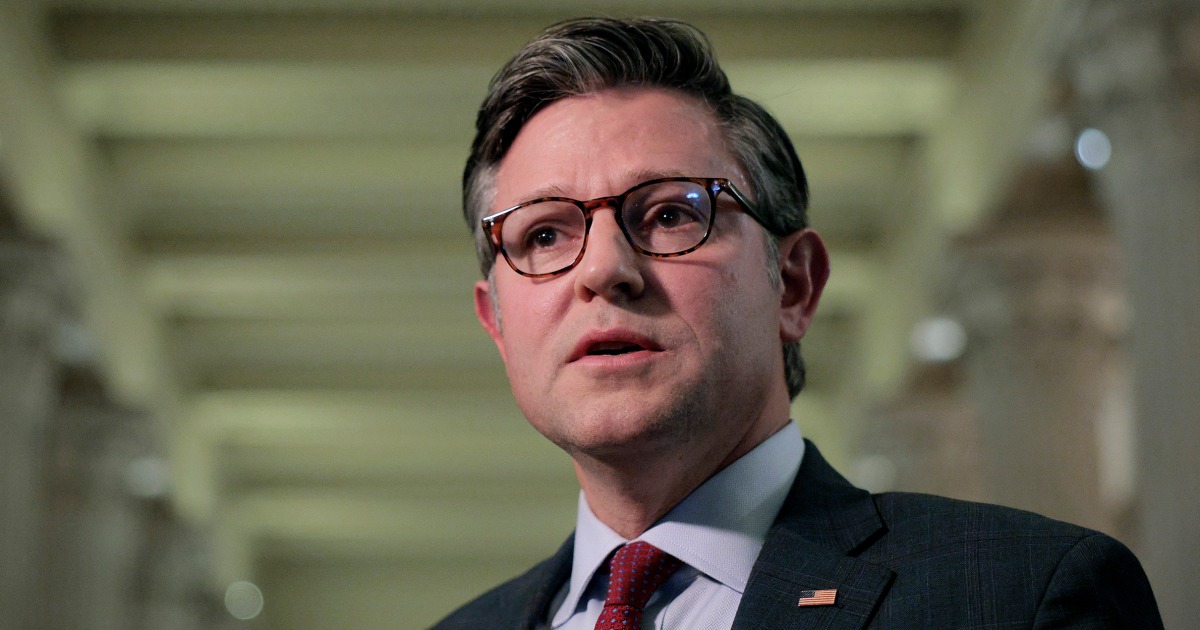WASHINGTON — Senate Republican leaders have made consequential moves this year to weaken or end-run minority power when it stands in the way of their ambitions during the second Donald Trump administration and GOP control of Congress.
In three separate instances, they have knocked down long-standing precedents and established new rules to advance their goals in the face of Democratic opposition, eroding the power of the minority in the process.
In May, Republicans voted to roll back an electric vehicle standard set by California despite the parliamentarian, the Senate’s in-house referee, advising that it was subject to 60 votes. Republicans overruled her, bypassing the filibuster and approving it with a GOP-only simple majority vote.
Weeks later, they reinvented the budget process in order to pass Trump’s “big, beautiful bill” — using an accounting trick to set a $0 sticker price for $3.8 trillion in tax cuts. The move was executed after Republicans refused Democratic calls to meet with the parliamentarian on whether the bill was eligible for a filibuster exception, which set an aggressive new precedent for what future majorities can do along party lines.
And this week, Republicans deployed the “nuclear option” to change Senate rules in order to confirm a bloc of 48 Trump nominees. The move will reverberate for years, allowing the Senate to confirm unlimited numbers of a president’s sub-Cabinet nominees in one batch, without needing minority consent.
Republicans have justified each of the moves by arguing that they were reacting to a unique set of circumstances. And they note that the 60-vote threshold to pass most legislation has not been abolished. Senate Majority Leader John Thune, R-S.D., promised after the 2024 election that the filibuster for legislation would remain unchanged on his watch.
“The Founders intended the Senate to be a counterbalance to the House,” Thune said in a floor speech in January. “It was designed to be a more stable, thoughtful, more deliberative legislative body to check ill-considered or intemperate legislation or tyranny by the majority. And as time has gone on, the legislative filibuster is the Senate rule that has had perhaps the greatest impact in preserving the Founders’ vision of the Senate.”
Yet, Democrats argue the growing GOP exceptions to the filibuster amount to death by a thousand cuts, all in an attempt to serve Trump, who has a history of calling for fully ending the filibuster.
It’s an awkward argument for Democrats who have, in recent years, rallied around the cause of abolishing the legislative filibuster, describing it as an undemocratic hindrance to many of their priorities.
Democrats tried to smash the legislative filibuster in 2022 to pass a sweeping voting rights package, but they fell two votes short. Those two senators, Kyrsten Sinema of Arizona and Joe Manchin of West Virginia, ended up leaving the party and soon retiring.
Senate Minority Leader Chuck Schumer, D-N.Y., predicted amid the latest GOP revision of the nominations rule that “it won’t take very long for Republicans to wish they had not pushed the chamber further down this awful road.”
Others charge Republicans with doublespeak.
“Trump is taking a wrecking ball to the Constitution, and the Senate Republicans are happy to take the same attitude to how the Senate operates,” said Sen. Jeff Merkley, D-Ore., the ranking member of the Budget Committee, who called the Republicans’ moves “funny” in light of their promises to preserve Senate rules.
“Any commentary about Republicans not undermining the filibuster — they did that,” Merkley said. “Because they didn’t have 60 votes, and so they just absolutely rolled a bulldozer through the filibuster to be able to do that tax bill.”
Republicans had, for years, presented themselves as the defenders of the filibuster. After changing the rules for nominees this month, Republicans confirmed their first bloc of 48 in one vote Thursday. The next batch is expected to be bigger — 108 Trump nominees.
A Senate Republican aide argued that the move on nominations had nothing to do with the legislative filibuster.
“For anyone worried about the legislative filibuster, they should watch Democrats when they vote against a clean, short-term CR to keep the government open and fully funded,” the Republican aide said. “That will prove it’s alive and well.”
In the cases of the electric vehicle bill and Trump’s “big, beautiful” law, the aide argued that the law empowered senators — not the parliamentarian — to make final decisions.
Sen. John Curtis of Utah, a first-term Republican who has spoken in support of the filibuster, has voiced hesitation with several of the GOP moves to weaken the 60-vote rule. But in the end, he voted for each of them, including the rule change for nominees.
“Everybody knows we very likely would have stalled just as many nominees in the next Democratic administration. So the institution needed a fix. And that’s why I viewed this differently,” Curtis said, although he conceded that he worries about a slippery slope of eroding minority power in the Senate.
“That’s why it’s considered a place you don’t want to go — is the slippage. But the fear is you’re going to break the institution. It was already broken with the nominations,” he said, while adding that Democratic senators who have called for ending the legislative filibuster “scares me more” than the GOP changes.
Thune, who took over as Senate GOP leader this year, has been meticulous about seeking approval of the conference before triggering an erosion of minority power that will substantially change how the Senate functions for years to come.
Some liberal critics of the filibuster say this year’s actions prove that Republicans will sooner nix the 60-vote barrier than let it stand in the way of their biggest priorities.
“This is galling hypocrisy from Majority Leader Thune and Senate Republicans who spent years shedding crocodile tears as they claimed that Senate rules were sacrosanct while using them to block policies to deliver for working families when Democrats were in power,” said progressive organizer Stasha Rhodes, a filibuster critic. “At this point, the filibuster is essentially dead, and it’s clear that Senate Republicans will break and change the rule whenever they want to pass President Trump’s extreme agenda to serve the rich and powerful.”
Curtis, however, said he doesn’t believe what Republicans have done will lead to the death of the legislative filibuster.
“I actually have some colleagues who say, ‘Well, why shouldn’t we do it? They’ve all said they’re going to do it,’” he said. “No, no, I don’t. I will protect that legislative filibuster. That, to me, is a red line.”
Source link

